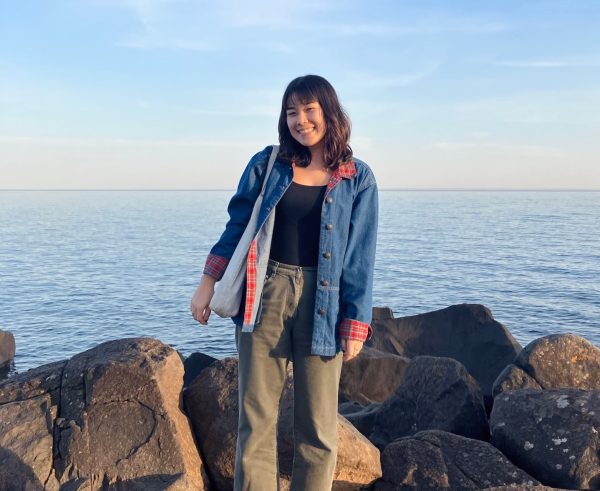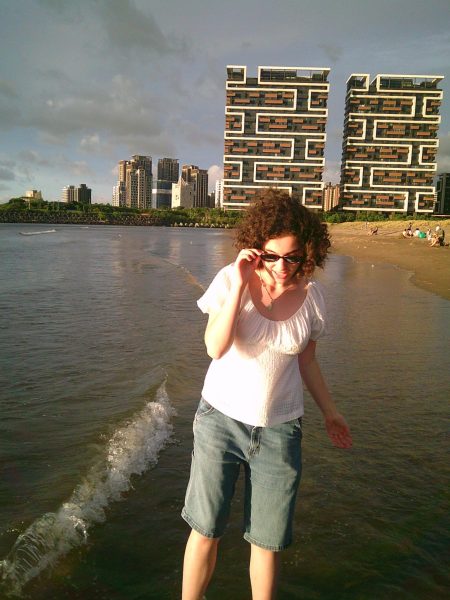On April 8-11, Macalester’s Center for Disability Resources hosted Radical Mac Access Week — a multiple day event focused on centering disability justice and advocacy through both discussion and lectures.
“We always step back and look at … how we can provide a continued space for those voices, those stories, the lived experiences of how we can provide space to have these conversations about what is needed to make change,” Shammah Bermudez, director of the Center for Disability Resources, said when asked about the goals of the week.
Activities began on Monday with the screening of Nicole Newman and James Lebrecht’s 2020 documentary “Crip Camp.” The documentary told the story of teenagers’ experiences of empowerment at Camp Jened, a summer camp for people with disabilities, and how that empowerment continued into future disability justice action.
The documentary focused on figures such as Larry Allison and Judith Heumann and their development into leaders of demonstrations, organizing marches, meetings with government officials and a month-long sit-in in the San Francisco U.S. Health Department office to advocate for legislative protections for civil rights for people with disabilities, among other initiatives.
A discussion was facilitated afterward, talking about the themes, notable figures and important messages of the documentary.
The following day, Macalester community members gathered in the Harmon Room to hear “The Language of Disability and Ableism,” the first of two student presentations given by Audrey Milk ’26.*
Milk, who shared that she has a genetic, lifelong, invisible disability and has encountered ableism throughout her entire life, explained how her experiences and observations led her to write an op-ed for The Mac Weekly last fall on various topics surrounding ableism in society. The conversation that she began in her article on language in the context of disability served as the foundation for her talk.
“The English language is constantly changing — it’s hard to keep up with new words added to the dictionary every year, new definitions attached to words that already exist,” Milk said. “Especially when discussing marginalized communities, it’s really hard to stay up to date with appropriate terms and how to respectfully address someone.”
The presentation began with Milk speaking on the difference between person-first and identity-first language. As she described, person-first language emphasizes the person in reference rather than their disability, which might look like calling someone a “person with a disability.” By contrast, identity-first language places the identity of an individual as disabled at the center, for example, referring to someone instead as a “disabled person.”
According to Milk, identity-first language has become more common in recent years “as a way to convey that disability is an important part of someone’s identity.” However, she also emphasized that not everyone has the same preference between person-first and identity-first language. For her, it’s always best to ask and never make assumptions.
“It is generally safer to use person-first language when you’re addressing a group as a whole,” Milk said. “Person-first language should be the default … but it shouldn’t be the only way that’s allowed. … Asking someone which language they want to use whenever it’s appropriate and relevant to the topic — it might seem awkward — but it can be incredibly affirming to that person.”
Milk then shifted her discussion to reclaiming words and phrases that once carried derogatory connotations and now associating them with a positive meaning. However, pointing to the empowerment that some people within the disabled community might feel in taking back terms historically used against them, she reiterated that others might feel uncomfortable with it.
In addition, Milk criticized the use of metaphors and euphemisms for disability, labeling them as often “infantilizing” and “dehumanizing,” and urged audience members to reflect on the message conveyed by utilizing those terms.
“People are always trying to replace the word ‘disability’ … and it’s not something that should be avoided,” Milk said. “[Disability] is not something that we need to dance around or reference indirectly. … Whether it’s conscious or not, the words that are used to describe a person or group of people have a huge impact on how people and how society sees that person or group.”
The presentation was followed by a brief Q&A with audience members. Students, faculty and staff met again in the Harmon Room on Wednesday for the second student presentation entitled “Utilizing UDL” by Sam Ash ’24 and Associate Director of the Center for Disability Resources Alyssa Klenotich. Universal Design for Learning (UDL) is an educational framework aimed at making learning accessible for all students, including those with learning disabilities.
“At its core, [UDL is] about allowing and providing access for everyone to the information [shared in classrooms], as well as ways to present that information in complex ways, and to make sure students are learning and understanding at their level,” Ash said.
During the presentation, Ash shared part of the research he conducted last semester for his capstone on K-16 perspectives on UDL. Through interviews with students, faculty and staff at two implementation sites — one of which being Macalester — he hoped to explore where people see UDL in their everyday lives and in these spaces.
Ash highlighted a number of themes that persisted across conversations with interviewees, including where UDL is and isn’t showing up, how to convince people to support it and what its future in education can look like. On the topic of engaging in conversations about UDL in schools, Ash noted that many educators said they hadn’t received formal training about its implementation in the classroom. Interviewees at Macalester echoed this sentiment.
“Students and faculty and staff here at Macalester have also noticed a similar thing about how there was nothing across the board that allowed professors or faculty and staff to have this general understanding of what UDL is and how to implement it into their classrooms or departments,” Ash said.
Ash concluded his presentation by encouraging audience members to advocate for UDL in the classroom, a call to action shared by Klenotich.
“I broke this down into thinking about what you can personally do to support UDL, which is first of all really thinking about how you can expand your own knowledge about UDL,” Klenotich said. “Interpersonally [it is about] what you can do in your community to promote UDL. Institutionally, [it is about] utilizing your power and taking risks to advocate for UDL. And ideologically, engage in collective societal changes.”
To close out the schedule of events, Macalester welcomed author Claire Forrest to talk about her book “Where You See Yourself.” The book centers on Effie, a high school senior with cerebral palsy, trying to navigate her transition to college, friendship troubles and first loves, on top of a lack of accessibility in everyday life. Forrest discussed her connections with the characters, her lived experience as a person with a disability and her motivations for making the book.
“When I was writing this book, I really wanted it to be a soft place and a safe place for people with disabilities to think about their own lives, their own experiences,” Forrest said.
Overall, Radical Mac Access Week allowed students and staff alike to have a place to reflect on their experiences while learning about others’ stories, holding discussions about what it truly means to be a disability justice advocate.
Bermudez expressed hope that Radical Mac Access Week encouraged students, faculty and staff to further their support for disability justice at Macalester and beyond. “I think the learning piece should be on our shoulders,” Bermudez said.
“It should never be on the individual with the disability to teach us. We need to do the learning, and the way to do that is to listen, to read and to really learn from the lived experience.”
* Audrey Milk is the opinion editor for The Mac Weekly.






